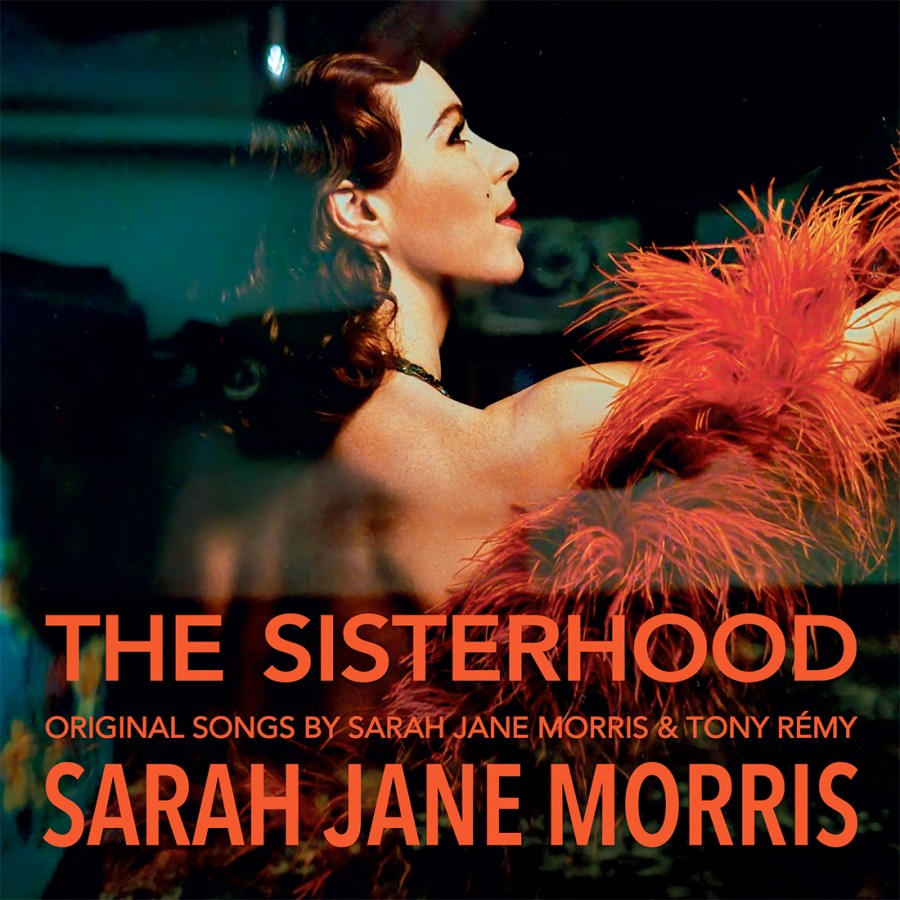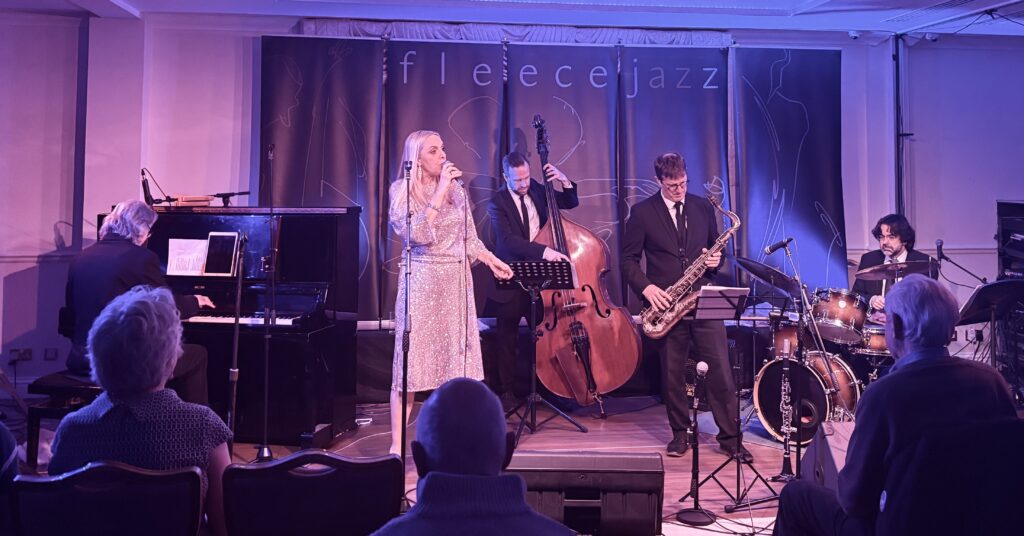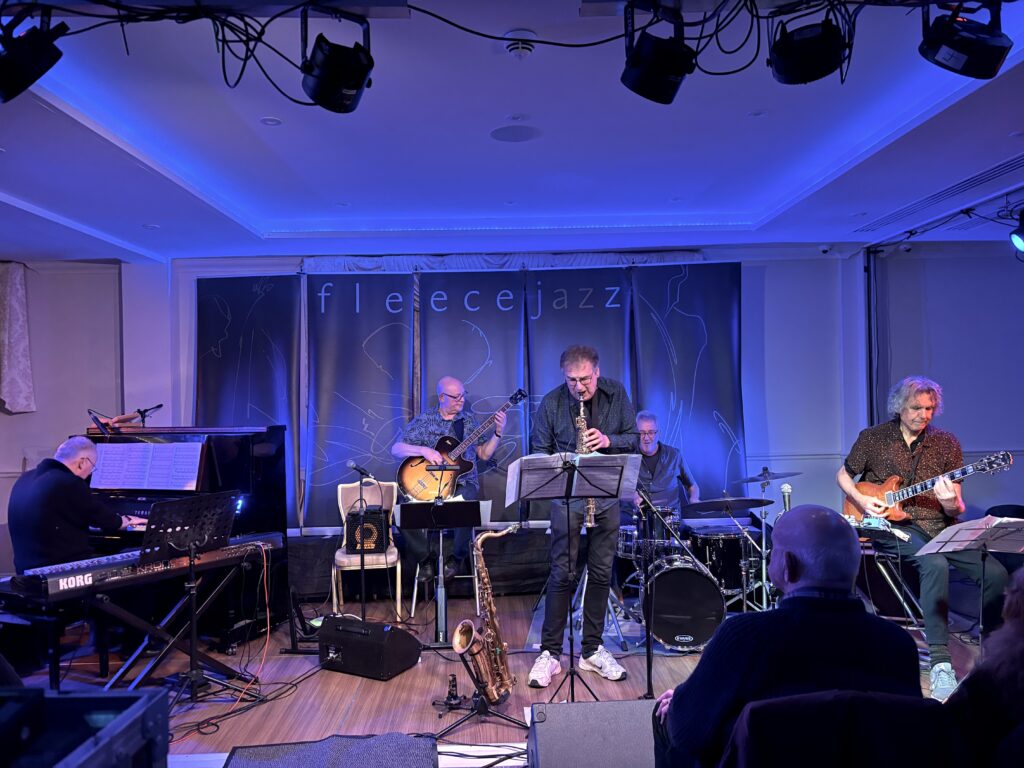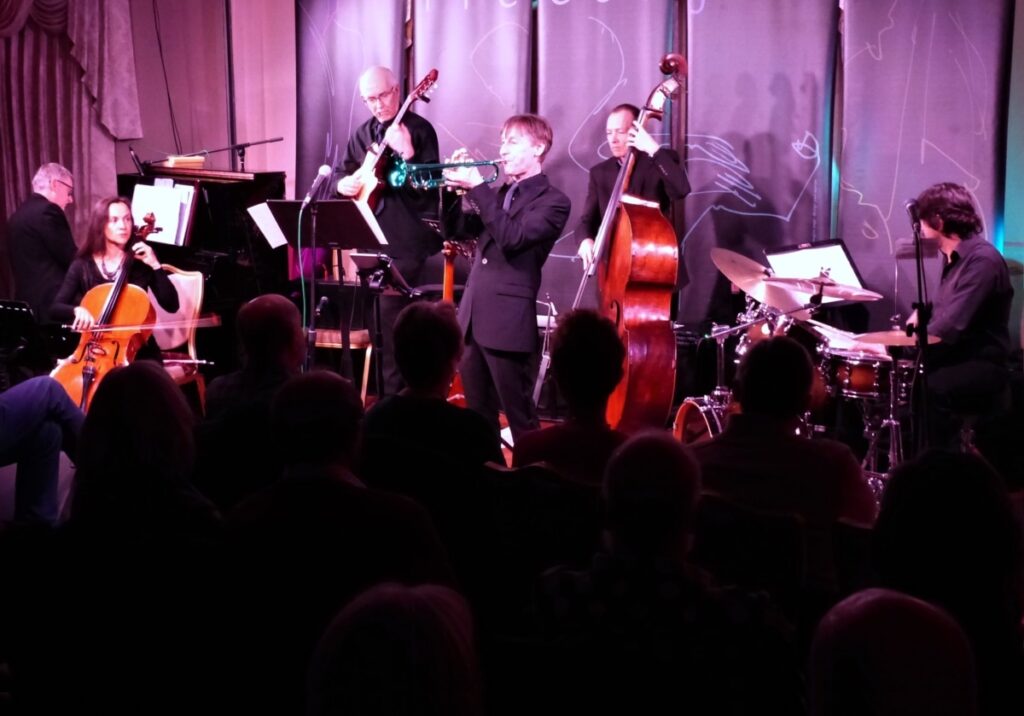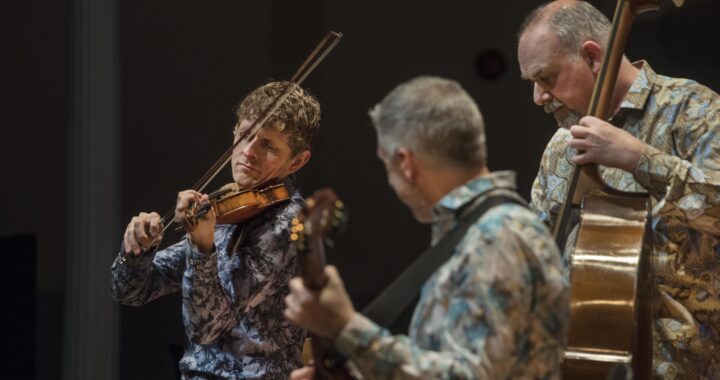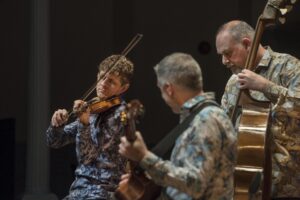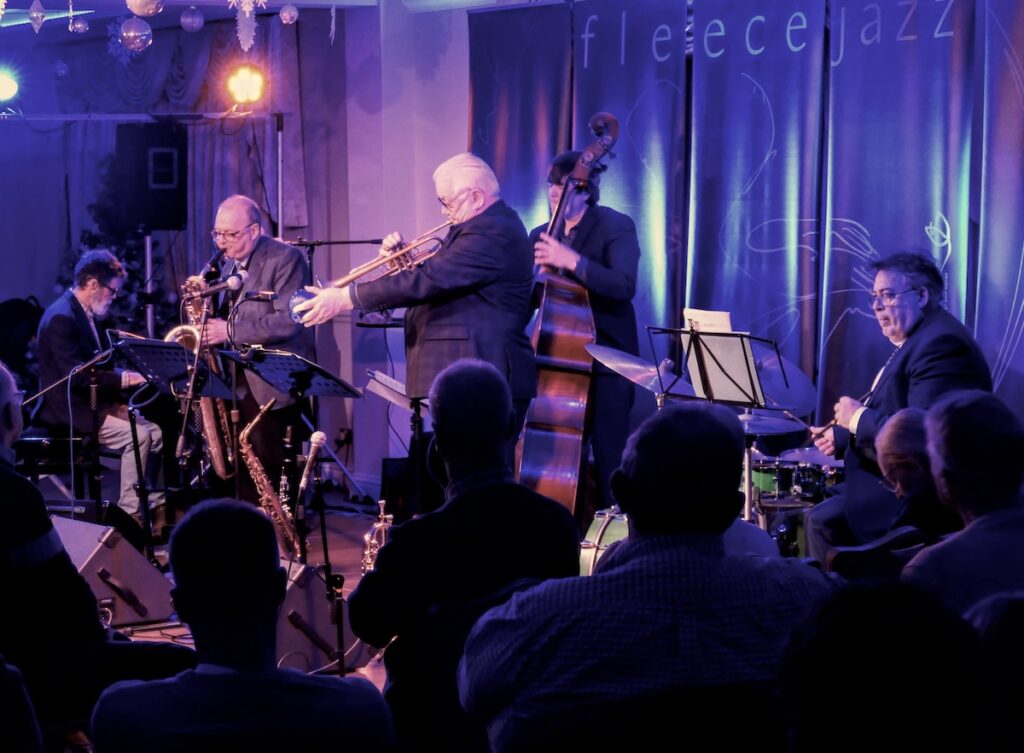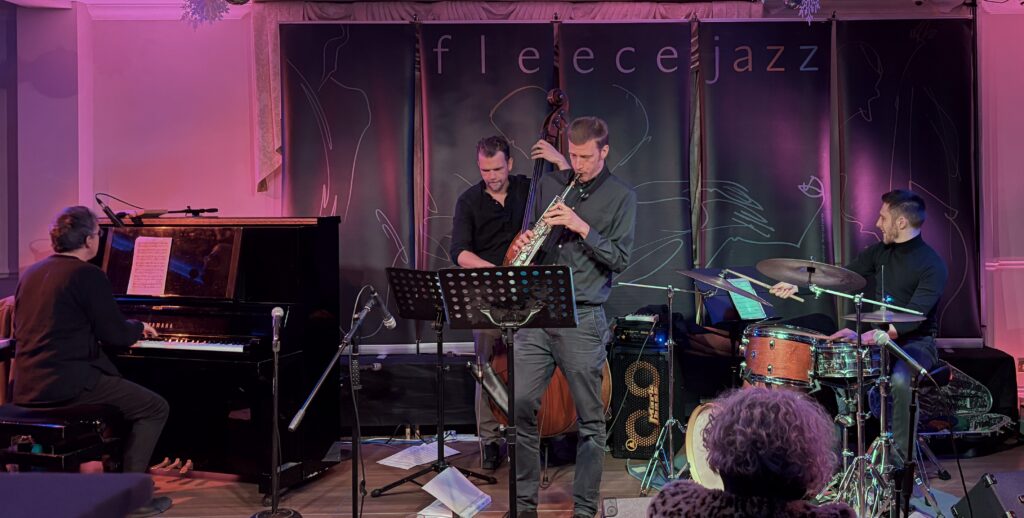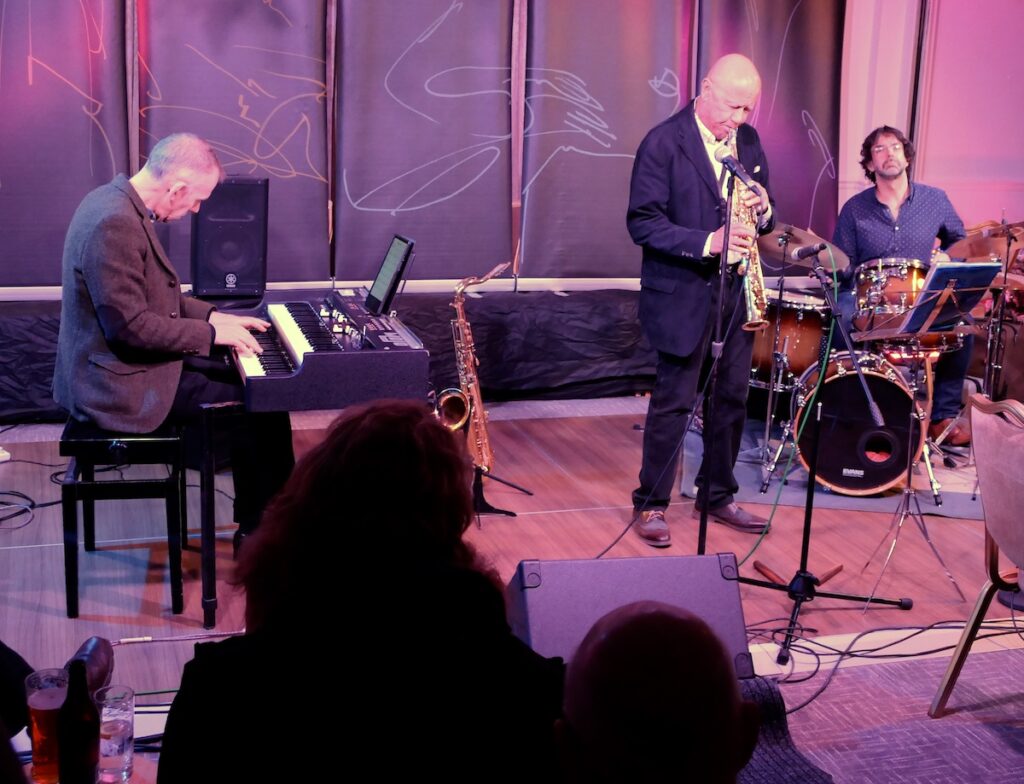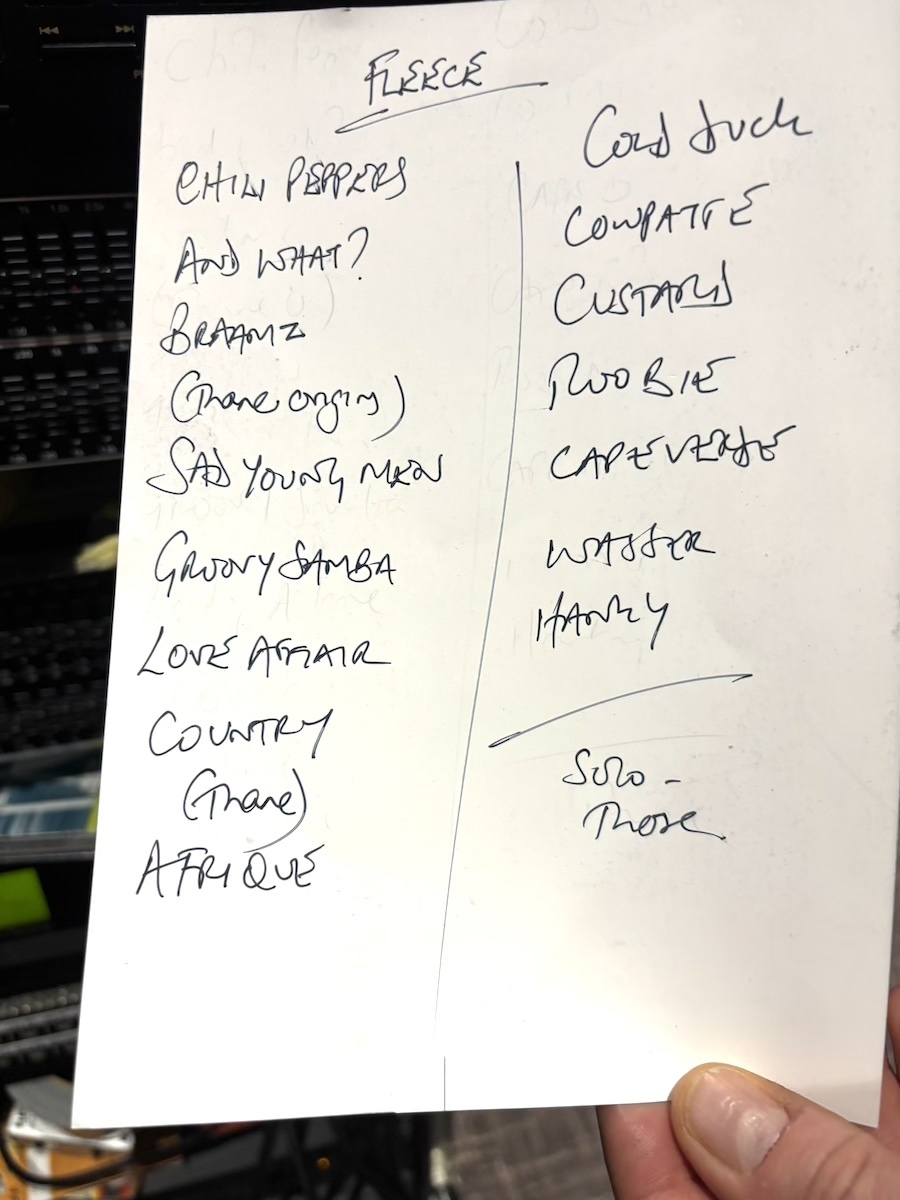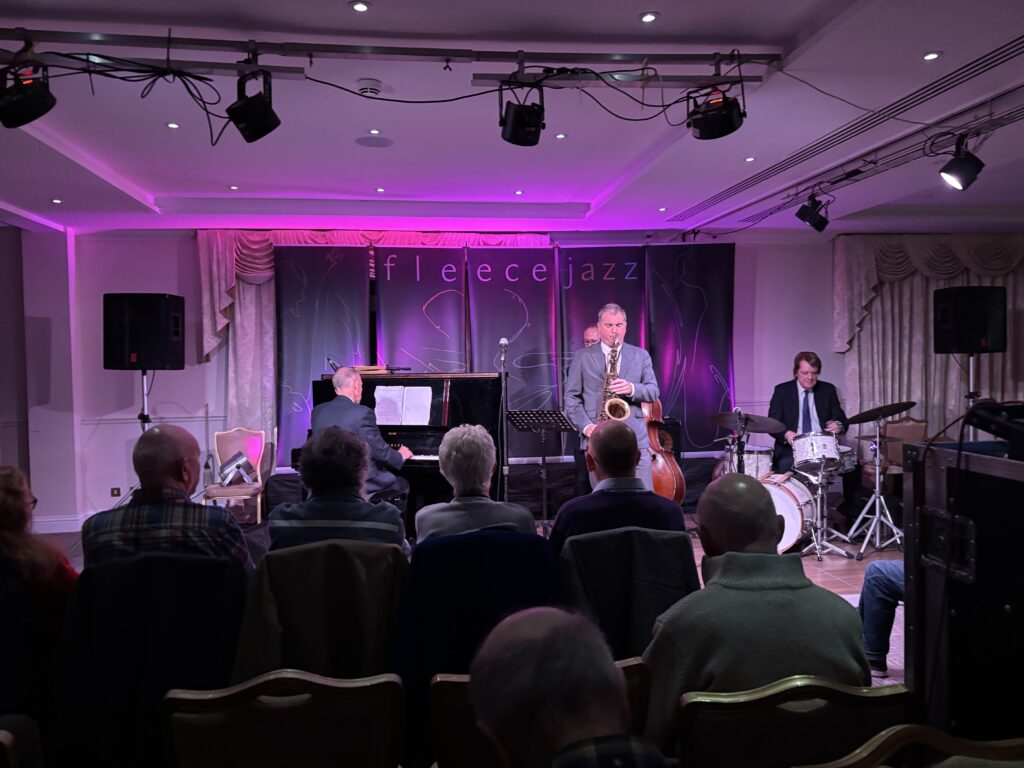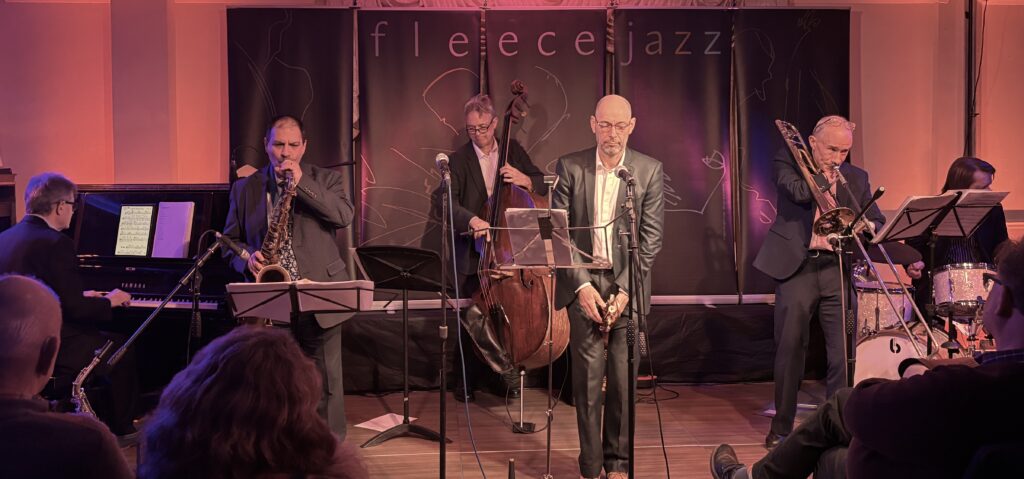
Steve said:
On Wednesday last, we were treated to some of the very best music from the Blue Note canon of the late 1950s and the 1960s, played by some of the best jazz musicians in the UK. It was a real pleasure to share their enthusiasm for this joyous, iconic music, which must be attributed in some measure to an insatiable and lifelong appetite for listening to past jazz recordings.
We were guided through the background and details of each number – who composed it, transcribed it and performed it – by the very knowledgeable and passionate trumpeter and leader, Chris Coull. Not only does it make the writing of the setlist so much easier, but it helps when you can make connections between what you are hearing and put it into an historical context.
Rather than dissect the delivery of each number this week, I want to concentrate on what each musician brought to the performance. Pete Cater is becoming a regular visitor to Fleece Jazz, and each time, he reveals more and more of his style and versatility on the drums. He is not an extrovert but always delivers according to the demands of the music, adding the necessary anchor on which the rest of the band spin their tales. He had very few opportunities to feature as a soloist, but every now and then, one felt one’s eyes and ears drawn to him without losing focus on the group sound. Dominic Howells has been absent from Fleece Jazz for a long time and appeared in place of Dan Sheppard on double bass, as a more than capable ‘dep’. He featured as a soloist on a few occasions and his finger work was particularly stunning on Mobley’s ‘Funk in Deep Freeze’, lightning-fast as fingers and strings became a blur. On ‘Sunrise, Sunset’ – the showtune from ‘Fiddler on The Roof’ arranged by Oliver Nelson for Lee Morgan – it was less showy but produced a deep, haunting sound to match the mood of the song. It was a delight to welcome back Terry Seabrook on piano, who has previously visited us with his ‘Milestones’ project. His percussive style served as a strength when expressing the rhythm with the bass and drums, but there were occasions when he delighted the audience with more lyrical flourishes, such as his extended features on Wayne Shorter’s ‘Mr Jin’ and Freddie Hubbard’s ‘Lament for Booker’.
Up until the weekend before the gig, we were expecting a quintet which was a change to the original sextet advertised. We were truly thrilled when we were told of a change to the line-up, despite some extra work in advertising and rigging, because it meant that we would, after all, be welcoming back trombonist, Mark Bassey. His lyrical, heartfelt solos such as his features on ‘Funk in Deep Freeze’ and more significantly on (Jazz Messenger and trombonist) Curtis Fuller’s ‘Sortie’ and his skilfully executed ensemble work were captivating throughout the gig and enthusiastically received. His inclusion was a real bonus for which we were more than grateful.
As if it couldn’t get any better, we had Andy Panayi on tenor and alto saxophones performing with the virtuosity, freedom and depth for which he is renowned. Tonight, we were reminded of what a huge tone and intonation he has on both saxophones as he switched effortlessly from tenor to alto and back again as the number demanded. The earworm that is Jazz Messenger and altoist Bobby Watson’s ‘A Wheel Within a Wheel’ was a real crowd pleaser; his more easy-going, warm style evident on ‘Sunrise, Sunset’; his mastery essential to the sextet’s performance of Coltrane’s ‘Lazy Bird’.
Driving the whole thing and featured on countless jaw-dropping solos was, of course, trumpeter Chris Coull. Whether channelling the spirit of Freddie Hubbard, Lee Morgan, Donald Byrd or Kenny Dorham, the pyrotechnic solos just kept coming, and clearly, these tunes were ingrained in his head and in his heart – he demonstrated a true passion for the music in his playing and in his informative introductions between songs. To misquote Bill Shankly, “Jazz isn’t a matter of life and death . . . it is much, much more important than that.”
Dave said:
This gig was full of memories of being a teenager and learning about jazz. Back then, I had no real understanding of the level of musicianship required to be a jazzer, whether composing or whether playing and arranging, the last two being shown at such high levels at this gig. The gig was a joy from beginning to end. It was such a pleasure to welcome back Mark Bassey: he is at the pinnacle of his profession.
They do hard things with such ease. For example, while “A Wheel Within a Wheel”, while one horn was soloing, the other two combined in an excellent obligato. If one tunes in from time to time, to what is being played behind a solo, you will be treated to some surprisingly good music.
We got the sound just about right on our new kit, and we had better lighting gig to work with, so I was pleased about the technical side of the show
Tristan Bank has at last produced an album. On the 26th of this very month you will get to hear much of it live at the club. It is going to be full of interest from a very good band.
Take care
Dave
CHRIS COULL SEXTET SETLIST, FLEECE JAZZ 12/02/25
- Lotus Blossom (Kenny Dorham)
- Funk in Deep Freeze (Hank Mobley)
- A Wheel Within a Wheel (Bobby Watson)
- Sunrise, Sunset (Jerry Bock), arranged by Oliver Nelson for the 1967 Lee Morgan album ‘DelightfuLee’
- Lazy Bird (John Coltrane) from the album ‘Blue Train’
- Mr Jin (Wayne Shorter) from the Art Blakey album ‘Indestructible’
- Philly Twist (Donald Byrd) from the Kenny Dorham album ‘Whistle Stop’
* * * * * * *
- Speak No Evil (Wayne Shorter)
- The Moontrane (Woody Shaw) from the Freddie Hubbard-Woody Shaw album ‘The Eternal Triangle’
- Dolphin Dance (Herbie Hancock)
- Lament for Booker (Freddie Hubbard) a tribute to the late Booker Little
- Sortie (Curtis Fuller) from the Art Blakey album ‘Indestructible’
- Moment’s Notice (John Coltrane) from the album ‘Blue Train’
- Calling Miss Khadija (Lee Morgan) from the Art Blakey album ‘Indestructible’
